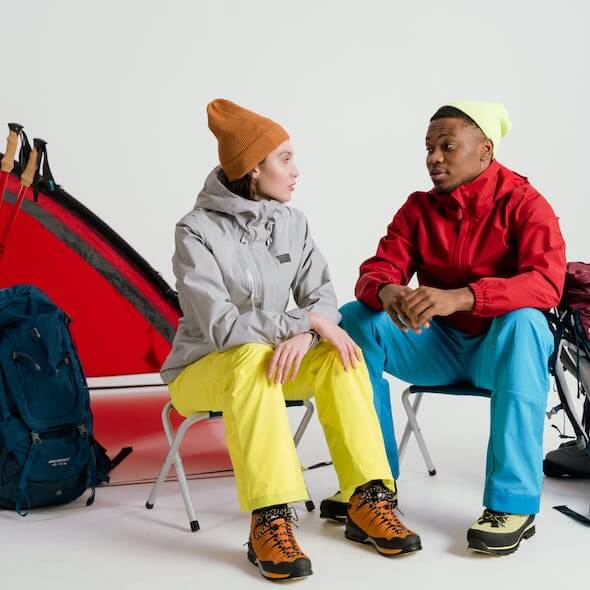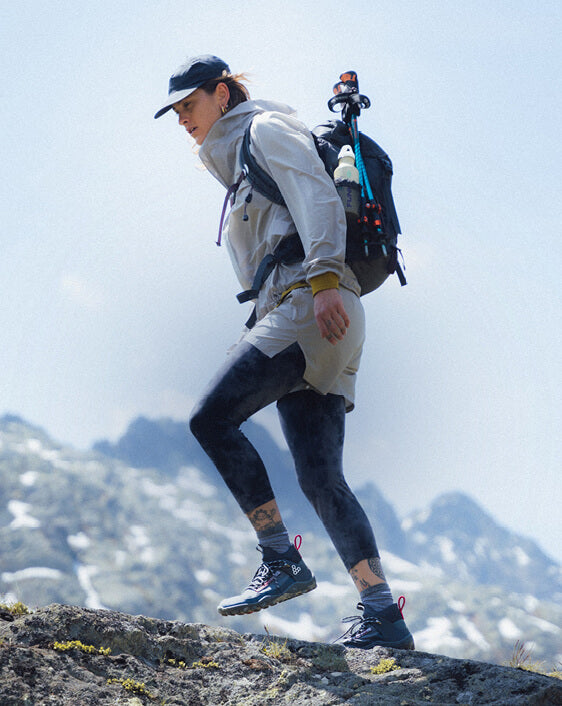With the pervading global awareness of our ecological footprint, exploring sustainable practices that help preserve the environment and reduce waste has become increasingly imperative. One of the revolutionary models gaining traction is the circular economy, a system grounded in the principle of designing out waste and pollution, keeping products and materials in use, and regenerating natural systems. At the heart of Adventureco's mission is our commitment to championing such innovative efforts within the outdoor gear industry, recognizing that we can better the world we so passionately explore through sustainability.
This blog post will delve into the principles of the circular economy within the camping and hiking gear industry, examining its significance, opportunities, and challenges in creating a sustainable future. We will discuss how outdoor brands embrace recycling efforts, transforming used equipment into new and functional gear, saving energy, and reducing waste. Furthermore, we will address the role of upcycling in the outdoor industry, assessing the advantages and challenges of turning old equipment into new, useful, and aesthetically pleasing products.
As retailers, we are uniquely positioned to influence this movement by selecting top-notch sustainable gear and promoting industry-wide circular economy initiatives. Likewise, we will explore how outdoor enthusiasts like you can participate in the circular economy by giving new life to pre-loved gear and contributing to a cleaner, greener, and more responsible approach.
Understanding the Circular Economy and Its Importance in the Outdoor Gear Industry
The Sustainable Future of Camping and Hiking Gear
To truly appreciate the implications of the circular economy in the outdoor gear industry, we must first grasp its core principles. The circular economy is a closed-loop system that significantly reduces waste and environmental harm by ensuring materials are continuously reused, refurbished or repurposed. This innovative model stands in stark contrast to the linear economy, which relies on a "take, make, dispose" mentality, resulting in vast amounts of waste and depletion of resources.
In the outdoor gear industry context, embracing the circular economy means rethinking how we design, produce, and consume camping and hiking equipment. Implementing closed-loop practices presents many opportunities, including reducing resource consumption, curtailing waste generation, promoting eco-friendly manufacturing, and driving innovation within the industry.
Recycling Efforts: How Outdoor Brands are Utilising Recycled Materials in Gear Production
Pioneering a Sustainable Approach to Production
Many forward-thinking outdoor gear companies have begun incorporating recycled materials into their production processes. By doing so, they significantly reduce waste and conserve precious resources. Here are some inspiring examples of major outdoor brands deploying recycling initiatives:
- Patagonia: This trailblazing brand transforms old garments and fabric scraps into new products by integrating recycled polyester and nylon into their gear.
- The North Face: The North Face's "Renewed" collection features refurbished items that have been restored to a high-quality standard, providing a second life to previously loved gear and reducing waste.
- Marmot: Marmot uses recycled materials, such as polyester, to prevent millions of plastic bottles from ending up in landfills.
These companies are leading the charge towards a circular economy in the outdoor gear industry, showcasing the incredible potential of recycling efforts in creating more sustainable and eco-friendly products.
Advantages and Challenges of Upcycling in the Camping and Hiking Gear Industry
Unlocking the Creative Potential of Upcycling
Upcycling converts old or discarded items into new, functional, and aesthetically appealing products. This eco-friendly practice is gaining momentum as a viable means of reducing waste and conserving resources in the outdoor gear industry. Some incredible examples of upcycled gear include stuffed pillows made from retired sleeping bags and stylish bags crafted from disused tents.
While upcycling offers numerous benefits, such as reducing landfill waste, conserving resources, and unleashing creativity, it comes with its own set of challenges. These can include limited access to discarded materials, the patchwork nature of upcycled gear posing durability concerns or logistical hurdles in scaling up upcycling projects without sacrificing quality.
Despite these challenges, upcycling is a powerful tool in promoting the circular economy, moving towards a more sustainable and waste-free outdoor gear industry.
What Outdoor Retailers Can Do to Promote Circular Economy in the Industry
Driving Change through Ethical Retail Practices
Retailers like Adventureco have a significant role to play in promoting the circular economy in the outdoor gear industry. We can drive the movement towards a more sustainable industry through conscientious retail practices, such as:
- Curating Collections: Choose to stock brands and products that champion sustainable practices, including recycling and upcycling efforts, to encourage a more mindful and responsible approach to consumption.
- Promoting Repair and Resale: Offer repair services for gear or facilitate the resale of pre-loved items, extending the life cycle of outdoor equipment and minimizing waste.
- Education and Communication: Educate customers about the benefits of the circular economy and how they can make more environmentally conscious choices when purchasing outdoor gear.
Shaping the Sustainable Future of the Outdoor Gear Industry
The shift towards a circular economy within the camping and hiking gear industry can transform how we view sustainable practices, waste reduction, and environmental stewardship. By understanding the importance of circular economy principles, celebrating outdoor brands that utilise recycled materials, appreciating the potential and challenges of upcycling, and recognising retailers' influential role in driving change, we can make significant strides towards a greener, more responsible industry.
Let us embrace this new era with open arms and open minds, as we work together in protecting our natural landscapes and ensuring that the intimate connection we share with the environment endures for generations to come.
Be a Part of the Sustainable Movement at Adventureco
Discover Adventureco's curated collection of sustainable camping and hiking gear, featuring products from brands that champion the principles of a circular economy. Explore our range and shop confidently, knowing we are committed to promoting a cleaner and greener future for the outdoor gear industry. Together, we can make a meaningful difference in preserving and protecting our beloved environment.


